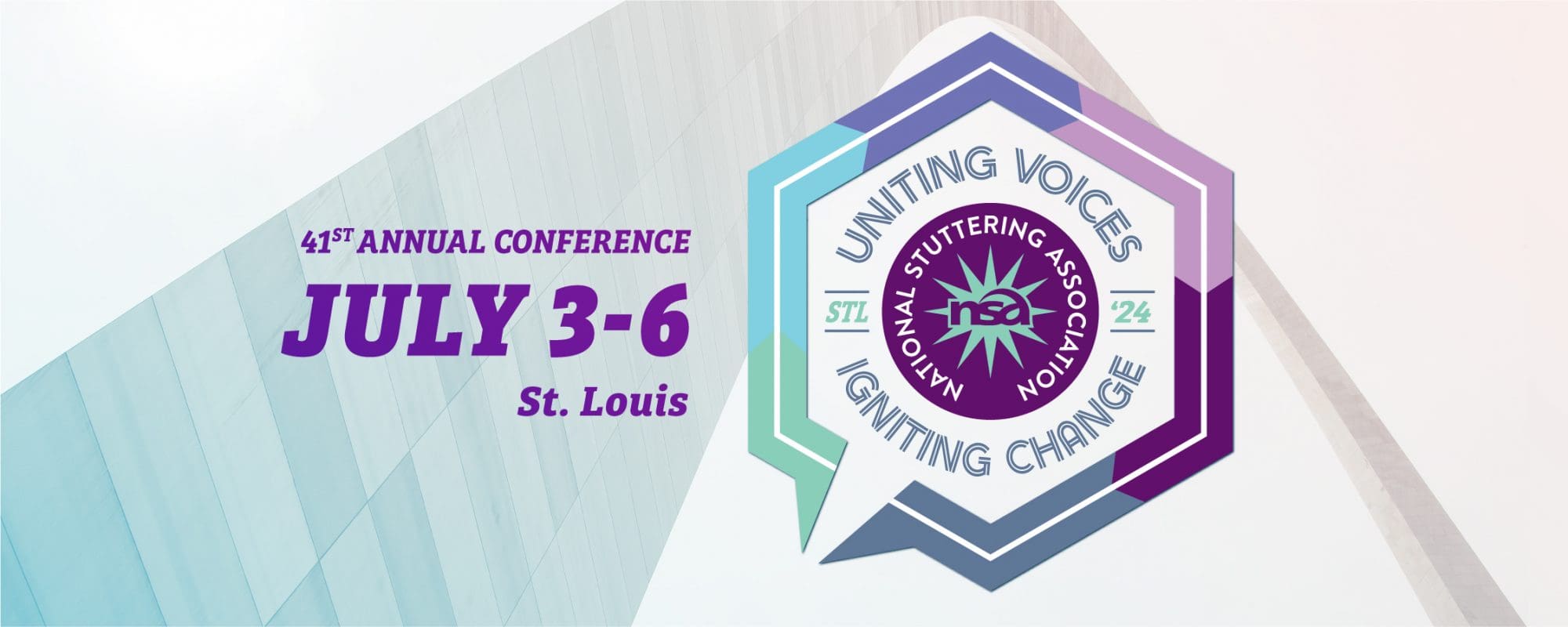
Thank You for Joining Us!
For another incredible conference in St. Louis. Now mark your calendars; we can’t wait to see you again July 2nd-6th in beautiful Denver, Colorado!
2024 (St. Louis) Conference Info
For SLP & CEU information, Click Here.
For over four decades, the National Stuttering Association has been empowering voices, sharing stories, and fostering connections. This year, we invite you and your family to soak up the energy and warmth of our stuttering community at the NSA’s 41st Annual Conference in St. Louis. Come for the celebration, stay for the education, and leave with lifelong connections for both kids and adults!
Here’s what you can expect:
- Informative Workshops: Explore new perspectives as we learn from people who stutter from all walks of life
- Exciting Activities: Discover the beauty and excitement of St. Louis and the surrounding area
- Family Fun: Enjoy laughter, connection, encouragement, and engagement as friendships are formed and strengthened
- Professional Development: Connect with other professionals in the field for a one-of-a-kind educational opportunity
- Empowering Connections: Surround yourself with hundreds of others who truly ‘get it’!
First Timer?
It’s a difficult decision to attend for the first time, but we can ease your fears.
* CEUs are available as an add-on ($30) to your conference registration.
It’s impossible to describe how powerful it is to spend four days where the majority of people you talk with, stutter. They understand what it is like to live with a stutter every day and achieve success in life.





